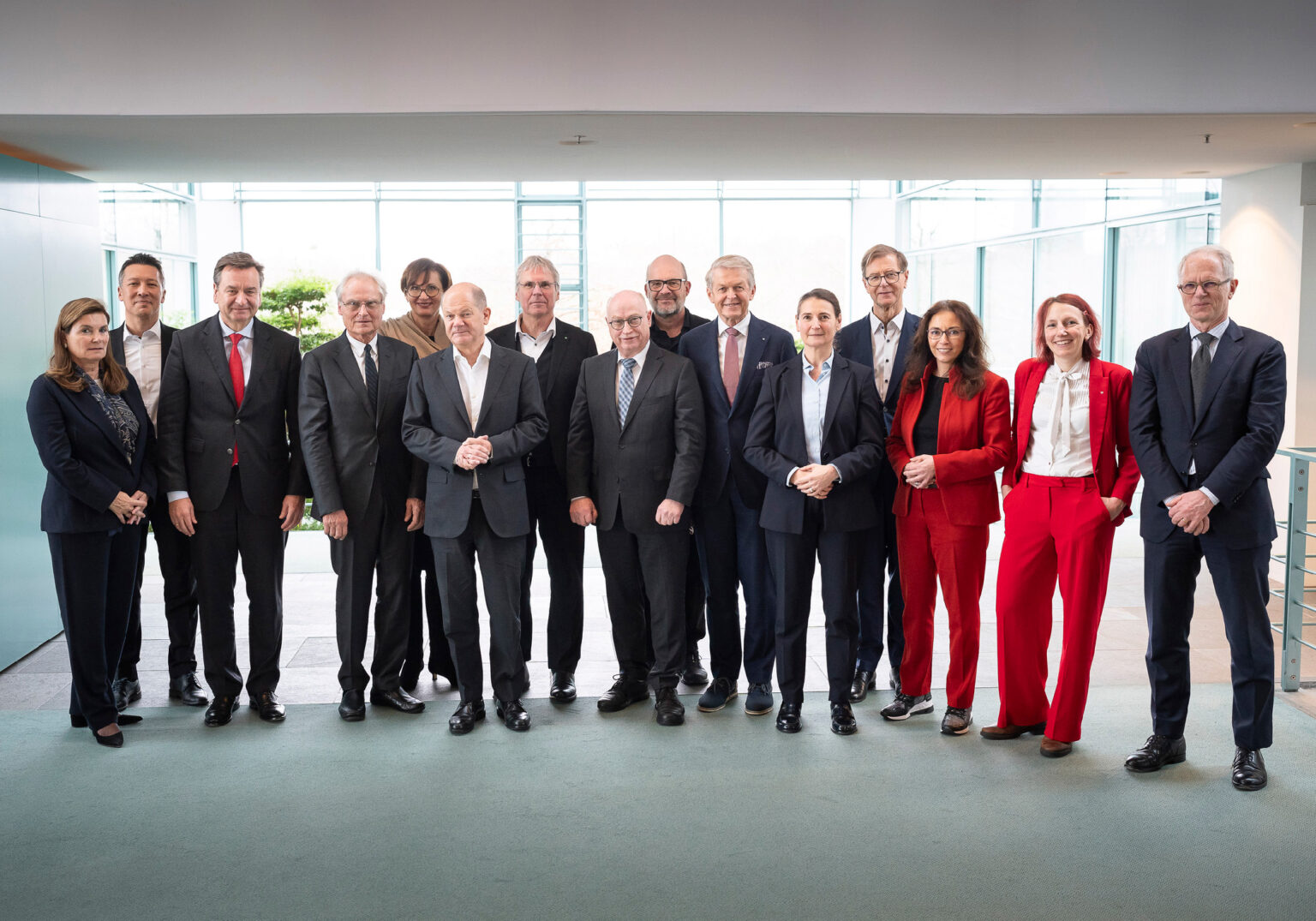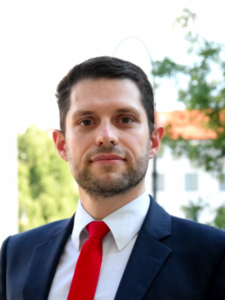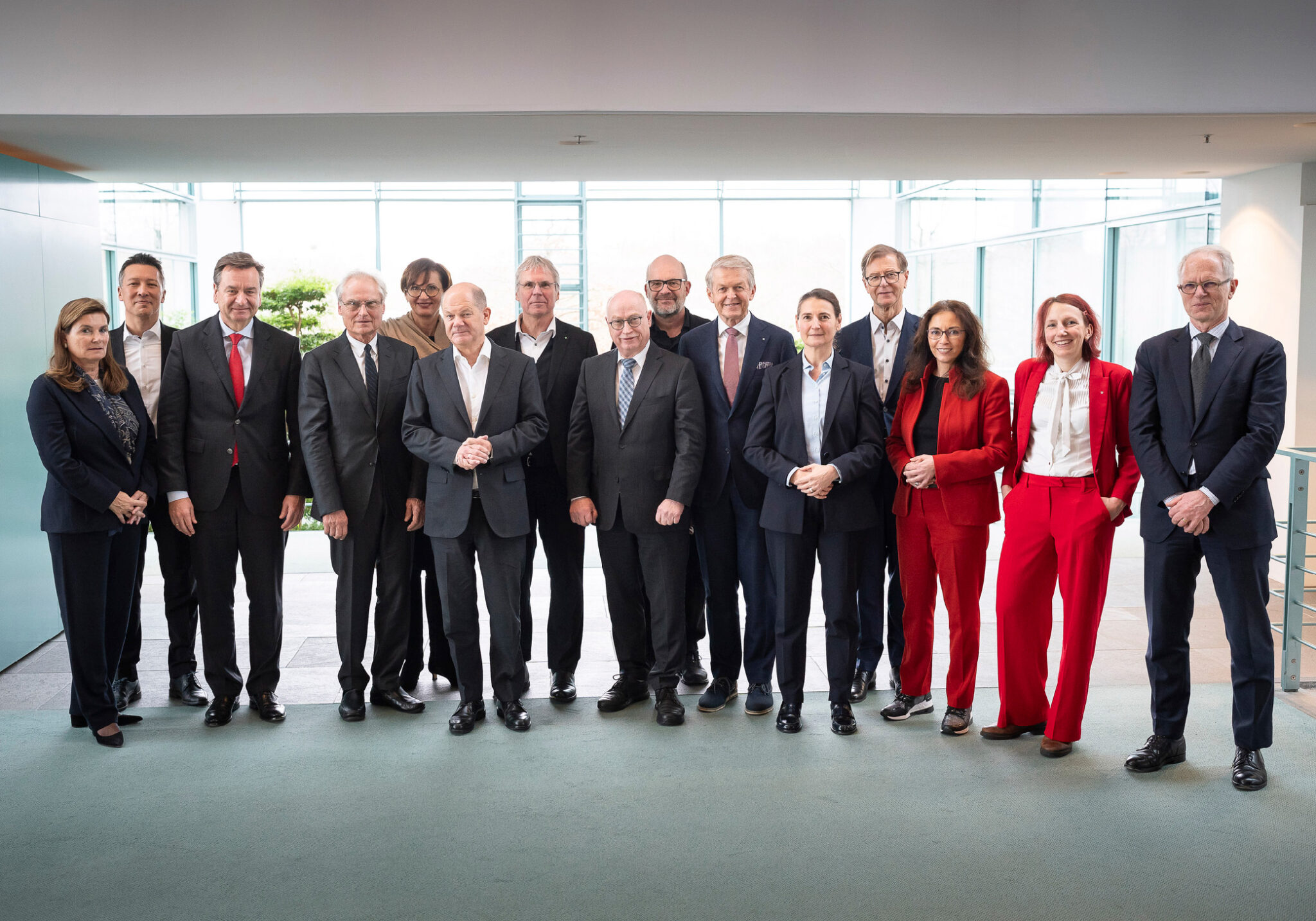Future Council of the Federal Chancellor: Sustainable development and use of generative AI in Germany

Berlin, 26 January 2024
Generative artificial intelligence (AI) holds enormous potential for society, especially for science, business and public administration. The goal is to bring about the swift and safe application of this rapidly evolving technology in Germany to strengthen competitiveness and technological sovereignty. This will also support German developers in international competition. This is the finding of the fourth meeting of the Future Council in Federal Chancellor Olaf Scholz’s legislative term. The Steering Committee of the Council met on January 26 with the Federal Chancellor, Federal Minister of Education and Research Bettina Stark-Watzinger, State Secretary at the Federal Ministry for Economic Udo Philipp and the Head of the Federal Chancellery Wolfgang Schmidt.
The main question of this meeting of the Future Council was: “What conditions must be in place to step up the development and use of generative AI in Germany?”. The goal is to realise the potential of AI in order to strengthen Germany’s competitiveness and technological sovereignty. Productivity gains should be realised quickly to reduce the risks of dependence on foreign technologies in the long term.
It was agreed that Germany has to catch up with the current international leaders in the near future. The foundations are in place: an excellent research landscape, highly qualified talent as well as strong domain knowledge and data resources in big industry and SMEs. According to the Future Council, one crucial aspect is to provide suitable computing capacity for science and industry in order to be able to realise ideas for innovative AI applications.
The Future Council reinforced that these problems should be addressed both in alliance at European level as well as nationally through partnerships between policy makers and industry. Based on existing European and national initiatives, the entire generative AI value chain must be considered, starting with the hardware: the Future Council recommends promoting domestic approaches by developing skills and technological ecosystems locally. In addition, one-sided dependencies must be permanently dismantled in order to anchor European values in AI models.
In further discussions, the upcoming foundation of the “Robotics Institute Germany (RIG)” as part of the Federal Ministry of Education and Research’s Robotics Research Action Plan was mentioned.
The agenda of the Federal Chancellor´s Future Council is prepared by an office based at acatech – National Academy of Science and Engineering.
The members of the Future Council of the Federal Chancellor from business, science and society are:
- Prof. Dr. Dr. Ann-Kristin Achleitner | TUM Distinguished Affiliated Professor at the Technical University of Munich
- Prof. Dr. Stefan Asenkerschbaumer | Chairman of the Supervisory Board of Robert Bosch GmbH
- Prof. Dr. Irene Bertschek | Head of the ZEW Research Unit “Digital Economy”; member of the Commission of Experts for Research and Innovation (EFI)
- Susan-Stefanie Breitkopf | Chief Transformation Officer (CTO) and Member of the Executive Board of the ZEISS Group
- Dr. Martin Brudermüller | Chairman of the Board of Executive Directors of BASF SE
- Yasmin Fahimi | Chairperson of the German Trade Union Confederation (DGB)
- Prof. Dr. Holger Hanselka | President of the Fraunhofer-Gesellschaft
- Dirk Hoke | CEO of Volocopter
- Prof. Dr. Henning Kagermann | Chairman of the acatech Board of Trustees
- Christian Klein | CEO and member of the Executive Board of SAP SE
- Prof. Dr. Bettina Schöne-Seifert | Professor of medical ethics at the University of Münster
- Prof. Dr. Martin Stratmann | President Emeritus of the Max Planck Society
- Prof. Dr. Geraldine Rauch | President of the Technische Universität Berlin
- Prof. Dr. Özlem Türeci | Co-founder and CMO of BioNTech; Professor of personalised immunotherapy at the Johannes Gutenberg University Mainz
- Prof. Dr. Thomas Weber| acatech President
- Dr. Joachim Wenning | Chair of the Board of Management of Munich Re





